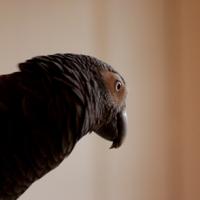What is "no matter" in Esperanto?
ca, kivuye
Ubutumwa 10
ururimi: English
MiEstasDavid (Kwerekana umwidondoro) 22 Gitugutu 2011 06:16:40
Hundies19 (Kwerekana umwidondoro) 22 Gitugutu 2011 06:49:12
 . Hope that helps, someone else will correct me if i'm wrong.
. Hope that helps, someone else will correct me if i'm wrong. MiEstasDavid (Kwerekana umwidondoro) 22 Gitugutu 2011 06:51:07
Hundies19:"Kion ajn mi faras" Would literally be Whatever I do. Or that's what the lessons i've bean taking sayThanks, Hundies! But would it work the same? That's what I'm trying to find out.. Hope that helps, someone else will correct me if i'm wrong.
Hundies19 (Kwerekana umwidondoro) 22 Gitugutu 2011 07:01:09
Malgraux would probably be necessary for clarity since the other sentence could be translated simply along the lines of;
I eat no matter what I happen to be doing.
Srcoco (Kwerekana umwidondoro) 22 Gitugutu 2011 07:04:44
darkweasel (Kwerekana umwidondoro) 22 Gitugutu 2011 08:32:34
Srcoco:i'm still a komencanto, but i would say: "ne gravas kion mi faras; mi daŭre manĝas"This is definitely possible.
You can definitely say:
Kion ajn mi faras, mi daŭre manĝas.
I think Hundies19’s malgraŭ proposal is not very comprehensible, and anyway it has some grammatical errors (malgraŭ io ajn, kion mi faras).
MiEstasDavid (Kwerekana umwidondoro) 22 Gitugutu 2011 09:38:40
Chainy (Kwerekana umwidondoro) 22 Gitugutu 2011 12:37:37
This sounds like a rather disturbing statement, though!

maxbox51 (Kwerekana umwidondoro) 31 Gitugutu 2011 19:48:23
MiEstasDavid:Is it just "kio ajn"? For example, does the sentence "No matter what I do, I keep eating." become "Kio ajn mi faras, mi daŭre manĝas." in Esperanto? Thanks!... mi daŭras mangi.
Literally, "I continue to eat," which may be a little closer to "I keep eating" than mi daŭre manĝas, "I continually eat". Perhaps even better,
... mi manĝadas.
This is more like "I eat and eat and eat."
darkweasel (Kwerekana umwidondoro) 31 Gitugutu 2011 21:55:16
maxbox51:You mean mi daŭrigas manĝi.
... mi daŭras mangi.


